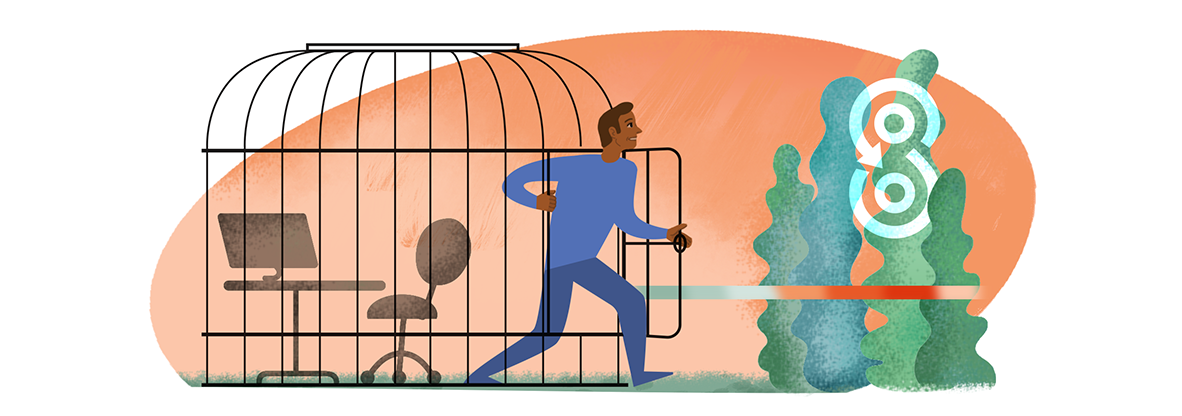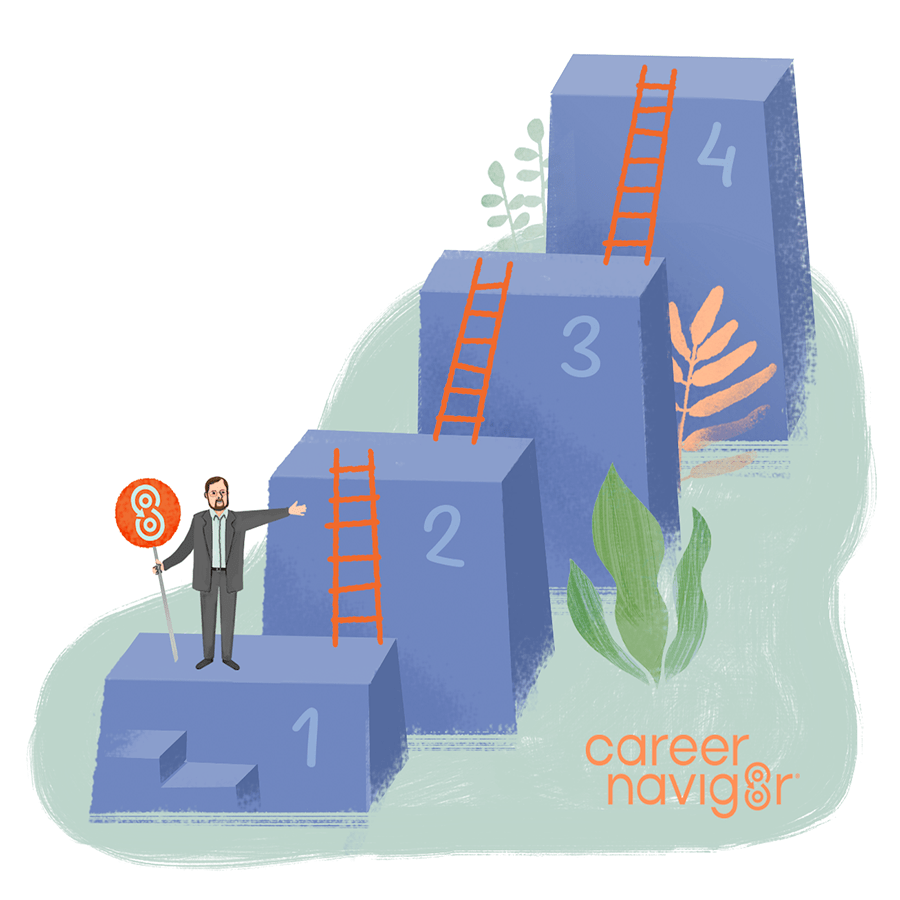Aiming For Financial Independence? Here’s What You Need to Know

For many people, becoming financially independent is the dream. Unfortunately, far fewer ever achieve that dream before reaching retirement age.
It’s important to understand that there’s no one set of steps to achieve financial independence. It requires a combination of hard work, sound investment strategies and, when all’s said and done, a little bit of luck.
With that said, it is perfectly possible to go from average income to full financial independence and often in a shorter time than you might think.
In this deep dive, we’ll be discussing our top financial independence tips, exploring what your best options might be, and discussing how you can take meaningful steps towards economic self-sufficiency.
What is Financial Independence?
Depending on who you ask, financial independence can mean several things. For some, it’s simply about having the income and resources to be self-reliant. In short, you make enough money to cover your necessary expenses.
This alone can be out of reach for many due to circumstances outside their control. For example, many disabled people are functionally prohibited from working high-paying jobs. They face high – and in some cases insurmountable – barriers to self-sufficiency. This is why accessibility in the workplace is so vitally important.
That said, some people define financial independence by an even higher bar. Full financial independence means acquiring enough wealth to retire early and live entirely on savings and passive income.
Many people assume that this level of wealth is simply out of their reach – that no matter how hard they work, they’ll never be able to quit their job without a solid retirement plan in place. Some even feel that taking steps towards FI might be risky, jeopardising their current financial status.
Fortunately, this isn’t the case. While there’s never a guarantee that your investments will be a massive success, responsible investments can still make good returns. Paired with an effective career strategy and a lot of hard work in the short term, it’s possible to build up quite an impressive portfolio of assets. Even if this portfolio never quite reaches your target number, you’ll still be in a better position than you would be otherwise.
But let’s back up a bit and talk definitions.
What is a Target Number?
Your first step on the road to FI should be to calculate your target number. This is the amount of savings you’ll need before you can stop working.
First of all, you’ll have to work out your living expenses. We’re not just talking about your current expenses, either, but the expenses you’ll be living with for the rest of your life. For example, if you’re currently renting, then you’ll almost certainly need to buy a home before you can achieve financial independence. At that point, your expenses won’t include rent but they will include a mortgage.
And then you have to think about dependents. Do you have children? Do you plan to have children? Do you have a partner and, if so, will you be supporting them as well?
Passive income sources can also lower your target number so long as they’re reliable revenue streams that aren’t likely to collapse. That said, it’s always more risky to rely on these for FI because reliable passive income can dry up if you’re unlucky. It’s better to trust in the money you have than the money you’re predicted to have.
Spending & Saving
It’s important to note here that FI isn’t just about earning a lot of money. Earning a lot of money will make you financially independent, but the core of FI is about being able to live a happy lifestyle free from the need to work a full-time job.
A part of that is learning to spend less and save as much money as you can. This might sound simple, but the amount of savings required to reach those target numbers can seem very daunting at first.
As a rule, if you’re aiming for FI, then you’ll want to reach a point where you can save 50% or more of your income.
Building Your Career Strategy
A common misunderstanding about financial independence is that it’s only possible for those who are born into money or who have a highly sought-after set of skills. Many people assume that if they’re not the heir to a barony, the world’s greatest neurosurgeon, or the next pop sensation, then they might as well forget about it.
This is absolutely not the case. Although some people are certainly much better placed to achieve FI than others, a well-planned and well-executed career strategy can make a whole world of difference.
Now, here at Career Navig8r, we’ve talked extensively about how to plan your career, the top earning careers, the best growth industries to go into, and even more down-to-earth topics such as how to approach a job interview. We won’t retread that ground here, but instead we’d like to talk about focusing on your macro-strategy.
Now, we’ll start by saying that it’s only so useful to plan ahead in your career. The job market changes all the time, your goals and interests may shift, and opportunities come and go that might not always conform to your existing plans. That’s why it’s important to keep your plans flexible and versatile.
All the same, you should always be looking forward and setting yourself targets. If you’re a junior, then you should have a date in mind when you plan to become a senior. That way you can track your career progression and course correct if your current approach isn’t getting you the promotions/job offers you need.
By the same token, if your plan is to one day go independent, perhaps starting your own company, then don’t wait around. You don’t have to hit full send on your plans straight away – particularly if you’re not ready – but don’t push them back into the distant future either. It’s far too easy to let personal projects shift from being clear goals to nebulous dreams.
Lastly, you have to know when to hold them and know when to fold them. When it comes to your job this means knowing when to take an opportunity and when that opportunity simply doesn’t match your plans.
For example, some young professionals get offered jobs that would require moving abroad. This can be a hard choice because it means uprooting from family and, potentially, having to split from loved ones or else bring them with you. Such dilemmas are often framed as a choice between your career and your personal relationships, but things are rarely that black and white.
In practice, higher pay isn’t always a step forward. If that higher pay means shifting to a less mobile job market, or moving away from the dream job you’ve been working towards then the years you spend in that new job might be more of a hindrance than a help.
At the same time, people rarely consider the importance of emotional support in their career. Put simply, you’re a more effective worker when you’re happy. If you want to be good at your job, then you’ll need a personal life that brings you happiness. If moving to another country would damage those personal relationships, then it has the potential to damage your career.
Not that we’re saying it’s a bad idea to move for your job, rather that it needs to be a calculated decision. Every choice you take in your career is a tradeoff. Having a solid roadmap of where you are and where you want to be will help you make those tradeoffs in a way that genuinely benefits you.
Ultimately, career planning isn’t easy but a good career plan is the cornerstone of any financial independence planning. Of course, the best way to plan your career will always be with expert advice which is why we recommend working with a mentor to discuss what your next steps should be and how you’re going to achieve them.
Making Sound Investments
As you progress through your career and your earnings increase, you’ll need to invest that money in the right places. Once you can afford to, it’s best to hire a financial advisor to help you make the right decisions.
Financial advisors are good for two reasons. The first is that they’re up to date on tax laws, so they can provide advice about how to keep more of your earnings in your pocket without breaking the law. At the same time, they’ll be able to advise you on the best deals the banks are offering, cutting through the marketing talk and offering genuine, useful insights.
With that said, you won’t just want to make one investment and be done. You’ll need a strategy.
Even safe investments can go wrong. Perhaps the most famous example of this is the 2008 financial crash. Many people lost a lot of money because it was thought that the value of housing could only increase. In this case, it was banks and financial advisors that made the mistake and many ordinary people who suffered the consequences.
While that may seem like a once-in-a-generation event, economic downturns happen every few years, both on large and smaller scales. Not to mention that, when we’re talking about losing your life savings, once in a generation is once too many.
All of this speaks to the importance of diversified investments. Several highly stable investments are always better than putting all your eggs in one basket, even if it’s a basket you really trust. That’s not to say you can never put some money into higher risk strategies, but be aware that, even if you know the market inside and out, high risk strategies are always gambles.
And when you gamble, you should never bet more than you’re prepared to lose.
Final Thoughts
Before we wrap up, we’d also like to note that your ability to achieve full financial independence is always dependent on your level of privilege. For many, it’s a realistic option, while for others it isn’t. This isn’t necessarily tied to your current earnings but depends instead on a wide array of factors.
On the other hand, we hope we’ve demonstrated that even for those who never quite hit their target goal, following the principles of FI can still be a very effective method for managing your finances and improving your quality of life.
Ultimately, your journey towards Financial Independence is personal to you. That’s why here at Career Navig8r, we believe it’s our job to provide you with the tools to decide how you want to approach your career. By working with one of our mentors, you’ll be able to ask questions directly, shape your learning to your needs, and work towards a job that can give you the life you’re looking for. Find out more by signing up to Career Navig8r today.


